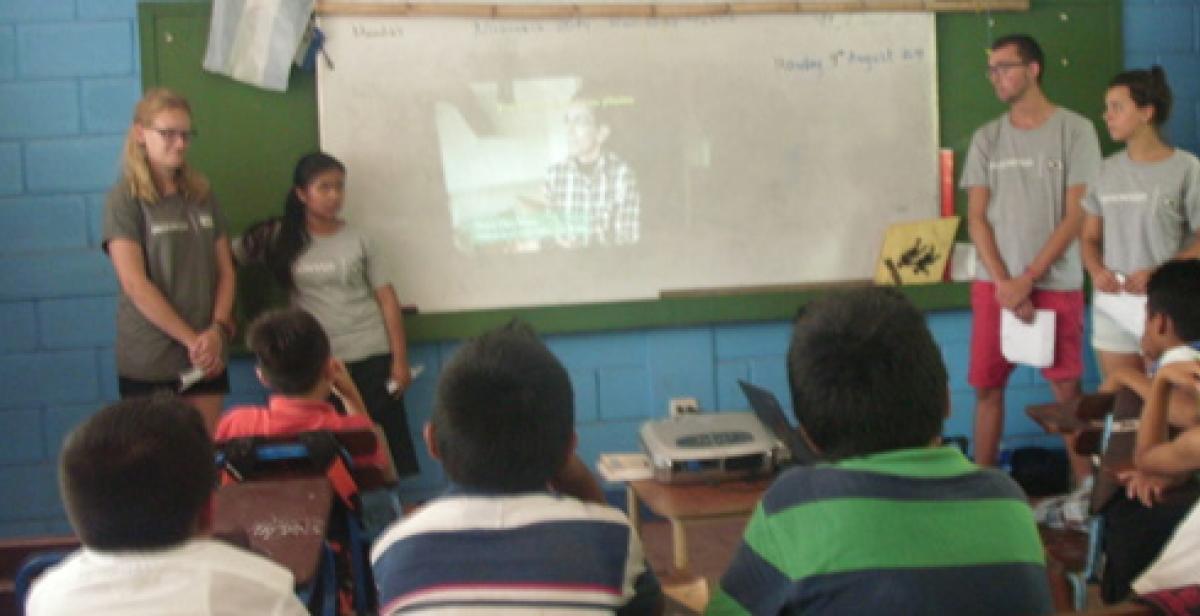After five weeks of constructing eco-latrines in Nicaragua we are pro-builders, and the latrines are coming along nicely. But we do have interests outside of toilets, and have also been working in smaller teams on projects relating to environmental sustainability, machismo culture, and sexual diversity. My group is concentrating on improving awareness about sexual diversity in El Pochote.
From discussions with the Nicaraguan volunteers in our group, we realised that there are similar issues in Britain and Nicaragua. Often, little information is given to young teenagers about sexual diversity. This lack of awareness is detrimental for society because it can mean that there is a stigma placed on certain sexual orientations, and can therefore result in discrimination. This can be particularly damaging for impressionable young people who are defining or questioning their sexuality. We came up with various ideas about how to tackle this problem, and decided that the best course of action was to give educational talks to young teens. We targeted it at those aged eleven and over, because although it is vital to start education early, the nature of the topic could be confusing for very young children.
So this week we stepped into a chaotic classroom full of pre-teens, ready to talk about sex. And, excepting a few giggles, we were pleasantly surprised at their level of maturity and receptiveness to the topic. Our key message was that there is a spectrum of sexualities and that everyone should be respected regardless of their sexual orientation. We then considered the harmful effects of and the difference between prejudice and discrimination. To finish the presentation, we showed a video and gave them a quiz to get them involved. Any kids who had stopped paying attention by this point, immediately perked up at the mention of prizes.
Afterwards, we wanted to consolidate what they had learnt by splitting them into groups to make posters about sexual diversity. This was definitely the highlight of the day. Every poster included uniquely touching and progressive pictures and captions. It was brilliant to see them creating their own ideas about the benefits of sexual diversity and the drawbacks to discrimination. One poster included individual thoughts from each of the students, such as ‘pues yo opino que todos tenemo derecho a nuestra sexualidad’ (my opinion is that we all have the right to our own sexuality) and ‘mi opinion es que no hay andar discriminar a las personas por que cada quien tiene derecho a cer su vida’ (my opinion is that no one should be discriminated against because everyone has a right to live their life). It was amazing to see them coming up with such positive messages of their own volition. We displayed the posters in their classroom to help them remember the day. Hopefully the information we gave will provide them with a respectful and foundational understanding of sexual diversity that they will take with them into later life. We are planning to continue our work by repeating our presentation at schools in Monimbo, and hope it goes just as well.
Written by Katie Exell



